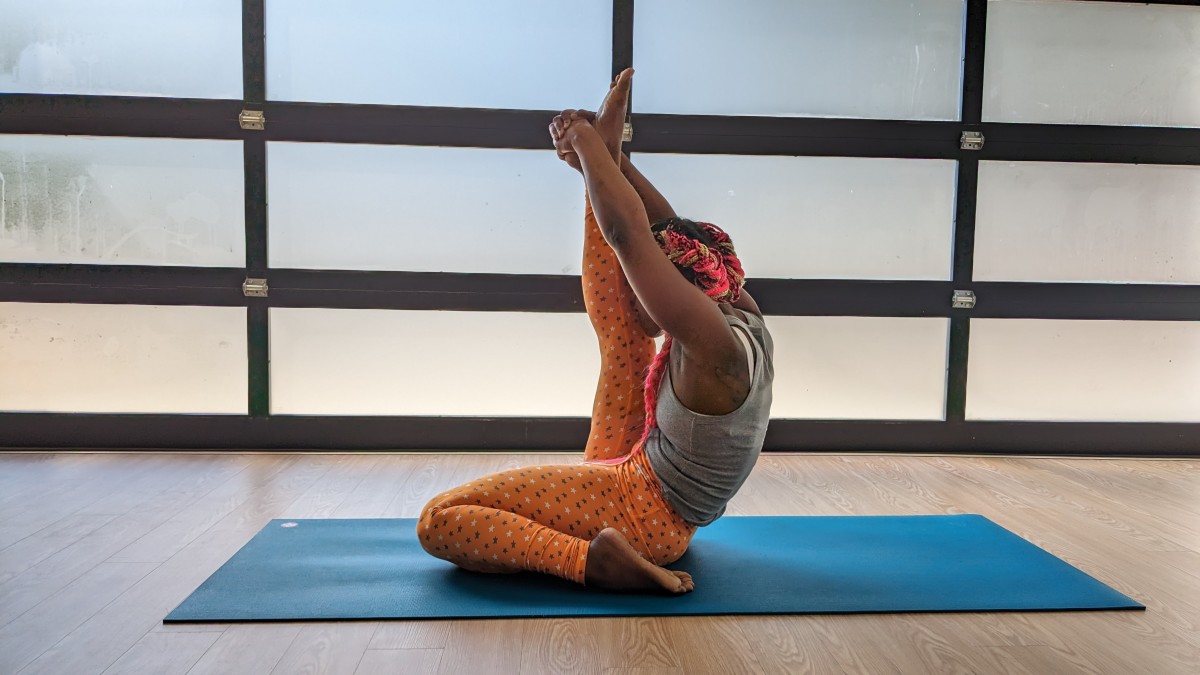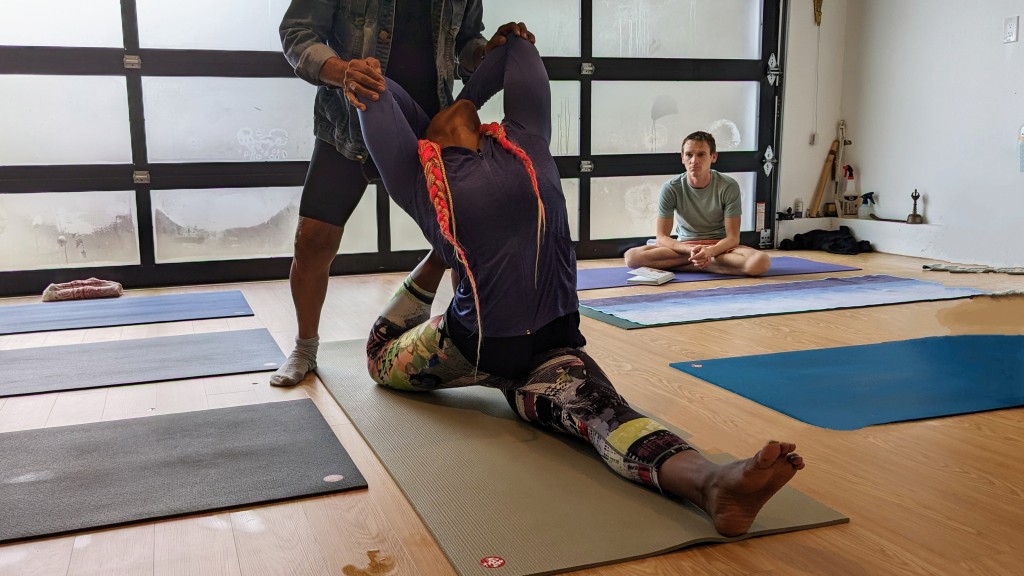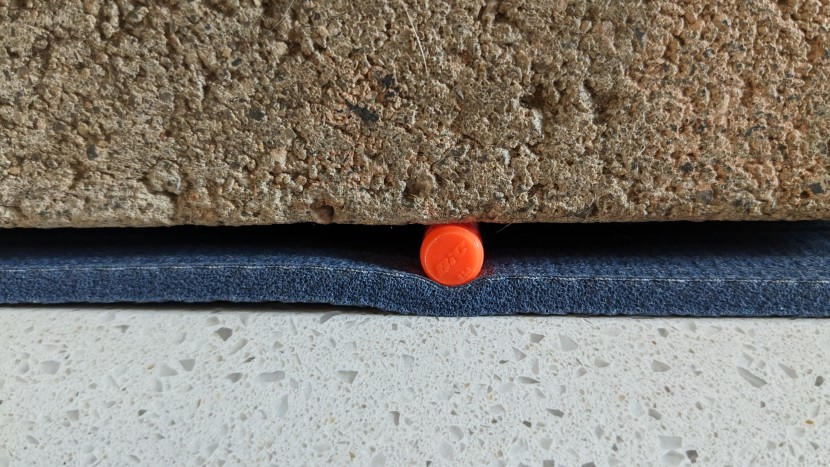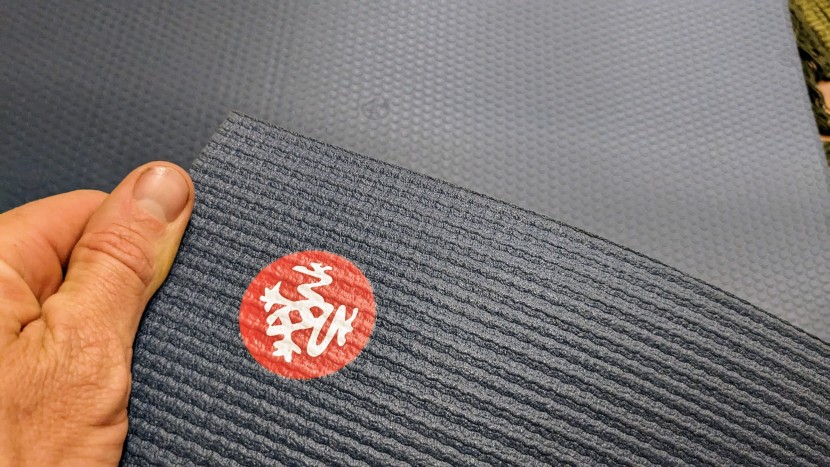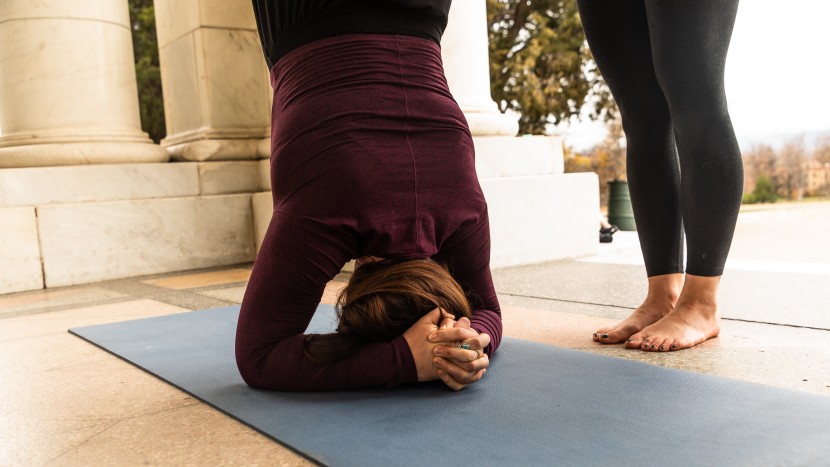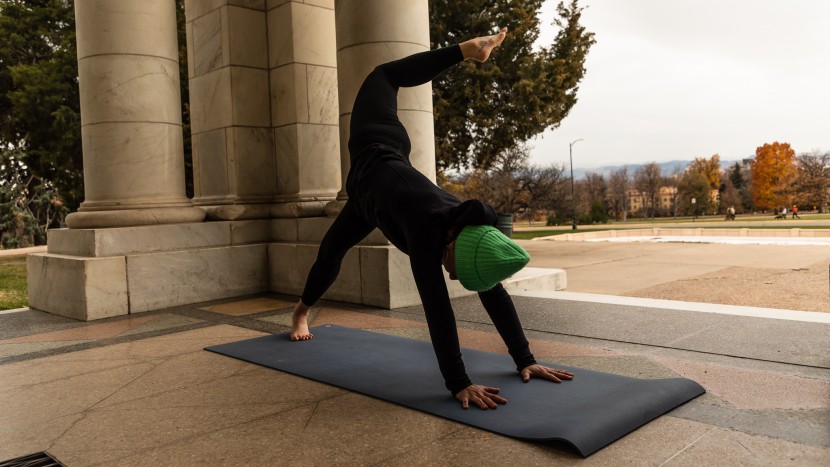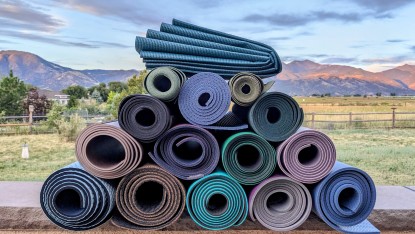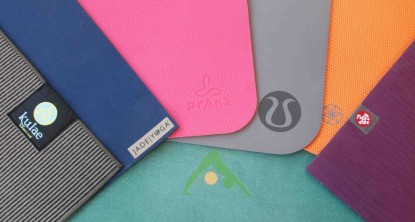Manduka PRO Review

Our Verdict
Our Analysis and Test Results
The Manduka PRO is made of polyester and PVC (polyvinyl chloride), a plastic polymer. While there are more eco-friendly materials used to make biodegradable mats, like natural rubber, PER (polymer environmental resin), or TPE (thermoplastic elastomer), Manduka considers this line of mats to be an environmentally conscious choice as the PVC is eco-certified as zero-waste, and they design their mats for durability. This mat weighs a whopping 7.5 pounds and measures 71 inches long by 26 inches wide and 6mm thick. The PRO stands out for its great comfort and stability. Its quality design and support make it a staple mat for many students and studios today and one of the longest-lived high performers in our lineup.
Comfort and Support
The PRO has 6mm of firm padding that, for many yogis, remains comfortable and protective of the joints even after a decade of sustained use. It is one of the most luxuriously dense mats in our lineup and is topped with a textured surface that feels soft and never abrades the skin when sliding through a transition. The PRO is the ideal firmness for balancing and one of our favorite foundations for inversion practice, handstands, and acro yoga. Manduka has been making mats since 1997, and the PRO benefits from decades of refinement.
A firm mat like the PRO is excellent for handstands, arm balances, single leg holds, and other asanas where a solid, flat base helps you balance confidently. This mat is our first choice on hard floors. Many testers and yoga teachers trust it for delicate balances like chin stand. We love that it is accessible for different bodies to work on balance needs. We talked with a yoga therapist who uses the PRO for therapeutic sessions like working with cancer patients who need a good balance of stability and joint-friendly cushion in their practice mat. Its firm and thick cushion allows it to work on balance and strengthen asanas that improve quality of life.
The PRO is also very heavy so that it won't move around on you when jumping from Samasthiti (upright standing mountain pose) to Chaturanga. You can feel secure performing head and arm balances on it. We appreciate the firmness beyond our practice space as it works wonders on softer ground. The thick, firm mat will support you on grass, sand, or carpet. We also love this mat for partner yoga and acro jams at the park.
Grip
Many mats offer a sticky grip, but Manduka intentionally designed something “not sticky” to balance grip and slide, and the PRO is one of our favorite mats for flowing through vinyasa (moving with breath). That said, while many sticky mats are great for beginners or yogis with sweaty hands, the downside is that some ultra-grippy mats cause you to get “stuck” transitioning between poses. This can influence yogis to step into poses instead of flowing — which can be okay if you prioritize non-slip traction but is something to consider if you want to flow with breath on your mat.
The top layer of the PRO has a textured surface that is easy to grip but doesn't overly lock your hands or feet into place. The textured surface helps you to feel all four corners of the feet and the energetic lift of your arch. When you need to balance on the hands for poses like Bakasana (crow pose), the textured surface grips when you press into the pads and mounds of the fingers and energetically pull up through the center of the palm like a gecko. The firm surface highly supports the delicate joints in the wrist, and one of our testers appreciated the PRO's firm cushion when she was recovering from a wrist injury.
Some find the PRO slippery initially, but it quickly breaks in with daily practice. Unlike many mats that lose their stick after a year or two, the PRO gets a softer, more grippy feel over time. It is an amazingly subtle surface-level shift, so the mat still looks new. If you want to break your mat in quickly, Manduka recommends applying a coating of coarse sea salt and letting it sit for 24 hours before spraying it with water and gently wiping it clean. Our testers felt that the mat offered sufficient grip, so we didn't need to “break it in” with anything more than our hands and feet, but other yogis have had great success with this method. We found that the texture gives decent traction when wet, but if you sweat puddles, its performance is not as non-slip as “sticky mats” in the presence of moisture. Adding a microfiber towel is an excellent fix for pooling sweat. The benefit of a less absorbent mat is that it doesn't get saturated with body fluids, so it is much easier to wipe down and is less likely to get stinky.
Materials
The Manduka PRO is the only mat we tested with a lifetime guarantee, and these mats can last for many stages of your yoga journey. One of our testers has used her PRO for five years; it looks like it could have been unboxed today, and the cushion has not been compressed. At one yoga teacher workshop, one of our testers even made student adjustments on a nearly twenty-year-old PRO still in mint condition. These mats are quality-built to last.
The mat's closed-cell construction keeps dirt, sweat, and other moisture from absorbing deep into the mat. It makes cleaning easy, as any funk from sweat and grime wipes quickly off the surface. This mat's PVC is certified Standard 100 by OEKO-TEX. PVC takes a herculean effort to tear so that this mat will last a long time.
Ease of Use
The Manduka PRO is low maintenance. Because the closed-cell construction doesn't absorb moisture, the smooth surface is super easy to wipe down. You don't have to worry about a long dry time since body fluids do not drench the mat material.
Unlike open-cell mats that need a deep clean by submersion, do not submerge or soak your PRO in water. If it needs extra cleaning from dirt or sweat, Manduka recommends spraying the mat down until it is visibly wet on the surface, allowing the water to sit for 1-2 minutes, and then gently scrubbing any dirt or stains with a cloth. Let the PRO completely dry before storing it in a cool place. Manduka also sells a botanical disinfecting cleaner if you want a deeper clean or to share this mat with other yogis.
The PRO weighs 7.5 pounds, making it the heaviest in our test suite. While it rolls up tightly, you feel the weight on your shoulders in a yoga bag. If you're the kind of person who regularly drags two mats to class for extra cushion, then using just one of these mats instead might lighten your load a bit. It is a very versatile mat. It can be used inside, outside, on hard or soft ground, and is exceptional for most styles of yoga.
Should You Buy the Manduka PRO?
The Manduka PRO is a solid investment if you're looking for a long-lasting yoga mat, and if anything happens, it is backed by a lifetime guarantee. This mat offers a beautiful balance of grip and smoothness for sliding transitions. It has an excellent textured surface dry grip but becomes more slippery when wet, so there are better options if you want a mat for hot yoga. The closed-cell design doesn't absorb moisture or grime, so it doesn't smell funky over time and is easy to clean. The Manduka is one of the most comfortable mats we tested and unmatched for joint protection. On top of that, we love that it is built — and proven — to last.
What Other Yoga Mays Should You Consider?
The Manduka PRO is well-balanced for most yoga practices, but its middle-of-the-road wet grip may not be the best for hot yoga. For sweatier practices, you might consider the Lululemon The Mat, which also offers good cushion but absorbs sweat and remains sticky when wet. The PRO is also a heavy mat at 7.5 pounds, which is excellent for home studios but is a lot to carry around. If you want something lighter on your back and your wallet, the Iuga Eco Friendly Non Slip is one of the lightest sticky mats we tested without sacrificing superior cushion, grip, and stability.
| Awards | Best Overall Yoga Mat |
|---|---|
| Price | $138 List Check Price at Amazon |
Overall Score  |
|
| Star Rating | |
| Bottom Line | A yoga mat for a lifetime, this favorite of yoga teachers provides excellent cushion, stability, and grip even after years of vigorous practice |
| Pros | Joint friendly cushion, long-lasting and lifetime warranty, great balance of grip and slide, firm support for inversions and balancing, yoga teacher favorite |
| Cons | Heavy, more slippery when wet, break-in period for best grip |
| Rating Categories | Manduka PRO |
| Comfort and Support (35%) | |
| Grip (30%) | |
| Materials (20%) | |
| Ease of Use (15%) | |
| Specifications | Manduka PRO |
| Thickness | 6 mm |
| Length | 71" |
| Measured Weight | 7.5 lb |
| Width | 26" |
| Materials | PVC certified Standard 100 by OEKO-TEX |


